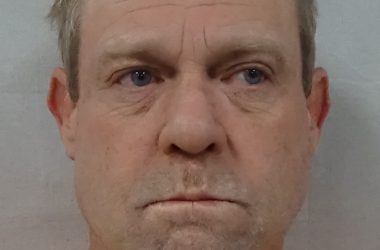Editor’s Note: Randy James, a second-generation firefighter with over 50 active years of service, recently testified before legislative representatives during interim committee meetings. James, President of the WV Fire Chiefs Association, is also a member of the Frametown Volunteer Fire Department. He and his wife reside in Frametown. The following article is reproduced from HD Media.
By Roger Adkins
[email protected]
West Virginia Fire Chiefs Association President Randy James discusses the need for additional funding for volunteer fire departments and emergency medical services during a legislative committee meeting on Tuesday.
The lack of funding for West Virginia’s volunteer fire departments and emergency medical services has reached a crisis level, according to testimony Tuesday during an interim legislative committee meeting.
Volunteer fire departments haven’t seen a state budget line-item increase since 2005 and the emergency medical services have never had one, West Virginia Fire Chiefs Association President Randy James said Tuesday to the Joint Committee on Volunteer Fire Departments and Emergency Medical Services.
At the same time, departments are facing skyrocketing operation costs, along with steep declines in recruitment and retention, said James, who also is a captain at the Frametown VFD.
Fifteen EMS squads closed their doors in 2022, James said. While volunteer fire departments are more hesitant to shut down, he said, the lack of funding inevitably leads to smaller rosters and a lack of interest in joining, usually because of the time-consuming fundraising commitments that come with the job.
Departments need state funding, so volunteers can spend their time training, maintaining equipment and facilities, and responding to calls, not serving hot dogs or organizing raffles, James said.
On the last day of the 2023 legislative session, lawmakers weren’t able to come to an agreement on a bill that would have split $12 million between the state’s fire department’s and emergency medical services, James said.
“I’m just going to be straight-up honest with you,” James said. “After the last day of the 2023 session, there was a lot of heartburn and disappointment coming from the fire service in West Virginia.”
While they all agreed fire and medical services are in dire need of the funding, lawmakers couldn’t agree on a source of that money. Some favored increasing a surcharge on fire and casualty insurance policies, another proposal was to use lottery funds.
“It seems that, every year, we pretty much go through the same 60-day process and then, in the last hours, certain lobbies don’t want us to have certain funding from some sources,” James told lawmakers.
This year, for the first time, the fire and emergency medical communities combined forces to lobby for the funding, but lawmakers still couldn’t get the ball across the goal line.
“Emergency services feel that we have a bigger voice if we combine our efforts here at the Capitol,” James said. “So, this past session, you saw a uniting of EMS and fire service. We run together in the field, so why don’t we just do it here?”
House Bill 3153 would have increased the surcharge on fire and casualty policies from 0.55% to 1%, to provide an increase to the state fire protection fund. “As there are more insurance policies and more housing is constructed, that funding would increase accordingly,” James said.
Another proposal called for using excess lottery funds to provide a one-time increase, James said. “This would cause the fund to never increase,” James said. “Even though our runs are increasing and our costs are increasing, the number of housing units are increasing, funding would stay the same.”
In 2022, 109 fire departments requested and obtained grants from the fire protection fund. James said it is a vital source of funding. “Many of us regarded it as a subsistence fund,” he said. “I know, back in the ’90s, the original intent was to have all departments have their basic needs covered by this fund. We all know that basic needs have increased, and that’s for all departments, big and little.”
James expressed frustration with the situation. “Is the fire service of West Virginia going about this the wrong way? Is there something we can do, or try, to convey the gravity of our situation across to you folks?” James asked. “It’s aggravating to come away with basically no increase in our funding since 2005, but yet hear the news about record surpluses and tax collections.”
The Legislature failed to act on this issue during the 2023 session, just as it failed to act on a shortage of correctional officers that has put the state’s prison and jail systems in crisis mode, Delegate Mike Honaker, R-Greenbrier, said. “This is just one of two crisis issues that we failed to deal with. I have apologized to the Department of Corrections, and I want to apologize to the volunteer departments and EMS for our inaction,” Honaker said. “We’re in a place where talk is cheap and we need to act.”
If the Legislature doesn’t do something soon, it could mean real-life consequences for West Virginians, Sen. Bill Hamilton, R-Upshur, said. “If we don’t do something, what’s going to happen when those people close their doors, including fire departments? People’s insurance rates are going to go up about triple,” Hamilton said.
Hamilton encouraged James and the fire and EMS communities to continue their lobbying efforts. “I’ve been involved in this for several years now,” Hamilton said. “Don’t give up the ship. Keep coming back. I think we’ll solve this this year.”


